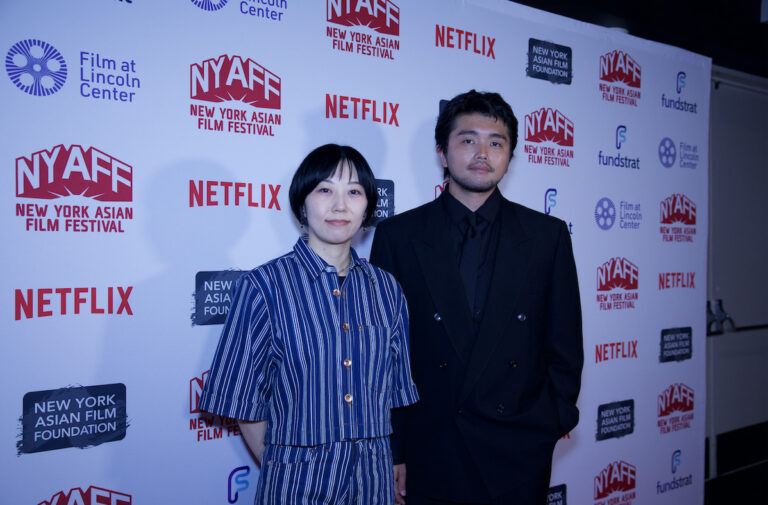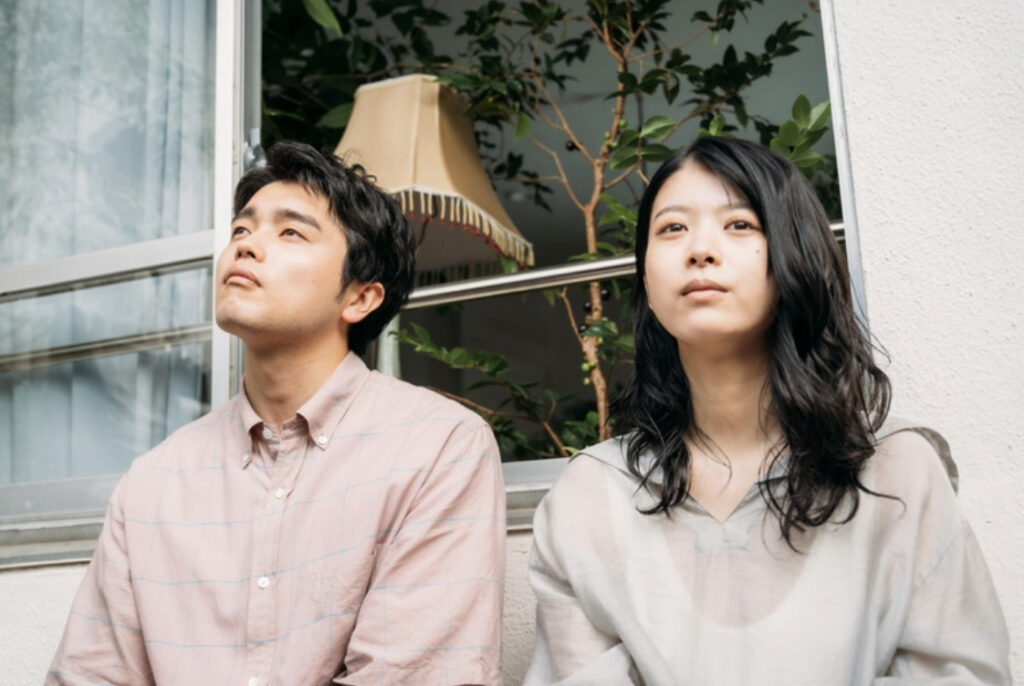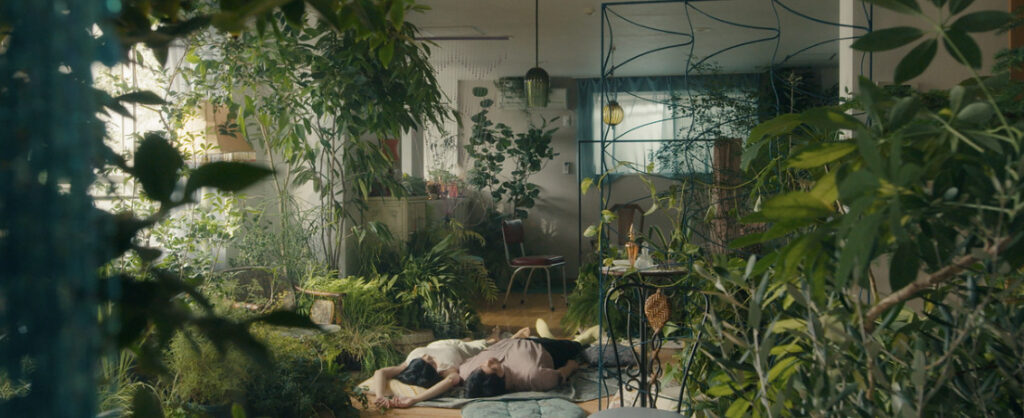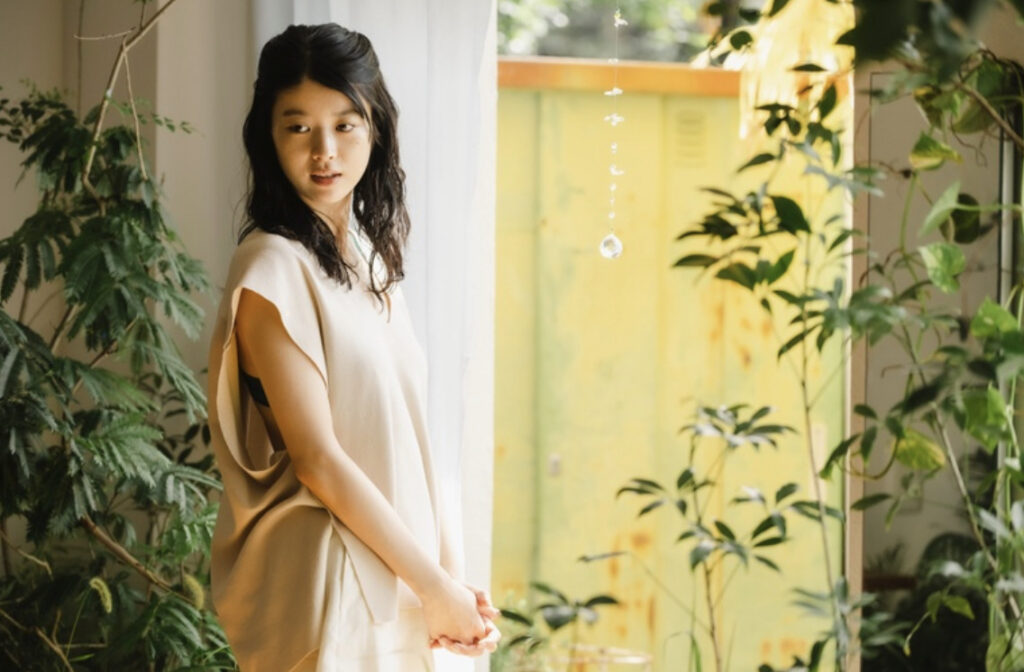
@New York Asian Film Festival
Synopsis : There are mysteries nested inside mysteries in this otherworldly erotic film, the directorial debut of veteran screenwriter Chihiro Ito (Crying Out Love in the Center of the World; Spring Snow), adapted from her own novel. Establishing herself instantly with a unique vision, Ito fully embraces the rewards of arthouse cinema’s long takes to stunning effect. Moving at a hypnotic pace, with many scenes so hushed they could almost be pantomimes, In Her Room follows a shy dentist, Dr. Susume (Satoru Iguchi, the keyboardist for J-pop sensation King Gnu) as he develops a strange relationship with a woman who lives in a lush, plant-filled apartment. The two share confidences as the vines creep over the walls and praying mantises scuttle silently. But Susume soon finds himself displaced by a female rival. Maybe. Possibly. Who really knows? This hothouse of secrets and lies is utterly beguiling, with hints of the absurd and an unforgettable soupçon of the surreal.

Photo: © In Her Room Film Partners
Exclusive Interview with Actor Satoru Iguchi and Director Chihiro Ito
Q: Ms. Ito, this film is produced by Isao Yukisada, with whom you have worked on films such as “Crying Out Love in the Center of the World” and “Close Note.” How did you come to not only write the script but also sit behind the camera for the first time?
Chihiro Ito: First of all, Mr. Yukisada is my mentor. I often wrote scripts for films he worked on, and we have been working together for a long time, but when I decided to try my hand at directing, Yukisada had never worked as a producer before. In other words, this is Yukisada’s first film as a producer, the first film as a director for me, and first starring role for Satoru Iguchi. When I was preparing for the movie “Side by Side: The People Next Door,” before this film, Mr. Yukisada came forward to serve as its producer. From then on, I was making various preparations while Mr. Yukisada was producing the film for me.
Q: Mr. Iguchi, Ms. Ito worked on this script for almost 10 years. What was it about the script that attracted you and made you decide to tackle the lead role for the first time?
Satoru Iguchi: First of all, the book was intriguing and the main character Susume had a unique presence. It was a great challenge for me to see how I could approach the character who can’t communicate well, and I was also curious to see how I could approach it. So when I received the offer, I decided to take part in the film.
Q: In the film, there’s a scene where Susume [Satoru Iguchi] and Miyako [Baba Fumika] discussed and shared their memories of the five senses. Did Mr. Iguchi and Ms. Ito have any experiences or memories in their real life that sharpened those senses in the past? How were those experiences reflected in your current work?
Satoru Iguchi: I’m usually a musician, but I originally lived in a house in a valley in the high mountains of Nagano Prefecture, Japan. I lived my whole life with a strong sense of the seasons, with snow-capped mountains as a landscape in its original state and deep greenery in the spring. Music can be completely different depending on the region. I don’t know if those things [a sense of seasons] are my roots or not, but I think I have that [in me]. I think somehow it lives on in my songs.
Chihiro Ito: For me, the theme of this film is self-consciousness, and Susume is a character with a strong sense of self-consciousness. When I was writing this novel [The book that’s the basis of this film], I really confronted my self-consciousness within myself. When I wondered what self-consciousness was in the first place. I had an unhealthy image of it, as if I was concentrating too much on nerves that are different from the five senses and my five senses were unbalanced. I was confronted by my own self-consciousness while I was involved in this work that I went in the opposite direction, but when I freed myself from this work [doing the novel], I dared to be more conscious of my five senses. That’s why I shot that scene.

Photo: © In Her Room Film Partners
Q: Ms. Ito, your original story was in a diary format to some extent, how did you incorporate such a format into your script?
Chihiro Ito: First of all, this novel is completely my thoughts — even as a diary is not necessarily true — but all the thoughts are packed in there, because it’s a novel in diary format. However, when it came to the film, it was very important that even if this character actually had a thought in his/her mind, it did not come to the surface. I am a film person, so I wrote the script with the feeling that there would be a huge gap when it was made into a movie. It was also part of the process of writing the script that I was very conscious of — and I enjoyed myself. That’s why I didn’t dare add some lines, or it would be necessary to have something like a voice [of a narrator] in my heart. If others were thinking of making my novel into a movie, they might have added voice [narration] of their hearts. I thought that maybe if we cast Iguchi, he would be able to express the voice of his heart through fine facial expressions and movements of his body.
Q: Mr. Iguchi, how did you, as an actor, fill in the gaps between the lines after reading a script with relatively few lines?
Satoru Iguchi: As I was acting, that was the most difficult point for me. In the original story, the diary style describes all the emotions of the character Susume, but it was difficult to know how much of that should come out, or whether it would be conveyed properly as an expression. I was very careful to check each time I was on the set, to see if it looked right and how it looked, I guess that was the point I was really emphasizing as I worked on the project.
Chihiro Ito: It’s not a character that expresses this kind of emotion with his face, so I was trying to find the right amount of it as I was creating the character.
Q: Ms. Ito, in the film when Susume is with Miyako, there’s a kind of sound that makes you feel immersed, like the sound of water flowing underwater deeply. On the other hand, in the scenes of Miyako with other people, there are unpleasant sounds like noises and groans which is like the voice of Susume’s mind. What were your intentions in using those sounds?
Chihiro Ito: I wanted to visualize the mental landscape, and, as I’ve said many times, I wanted to express something that was not through words, but something like a noise. Since the theme of this film is the uterus, I wanted to create a sound that would allow us to recognize what’s inside the uterus and something for his [Susume’s] stress. I was conscious of the sound of that expression.
Q: What did you think of when you heard that sound?
Satoru Iguchi: Finally, I understood that that was what it was about.

Photo: © In Her Room Film Partners
Q: Miyako [played by Fumika Baba] is a difficult role; it’s hard to grasp her inner life and state of mind. Did you audition Baba or saw her performance in other films beforehand to make your decision to cast her?
Chihiro Ito: I had seen her in a TV drama, and was really interested in her. Visually, I thought that Miyako should have a feminine presence and a round body. When I imagined Miyako in Japan, Baba was the first person who came to mind, and I wanted to talk to her for a while, so I decided to set up a meeting with her.
Q: Mr. Iguchi, what’s the charm of Miyako, who is close to Susume, even if Susume doesn’t really understand who she is.
Satoru Iguchi: Susume is attracted to Miyako because of her motherly nature, but I also think that Susume himself has not yet found his own image of himself, so he tried to grasp the shape of himself by following Miyako, who’s very elusive.
Q: Ms. Ito, when you directed Fumika Baba, it must have been difficult for you to have a clear direction because of the elusive nature of this character. What kind of conversation did you have with her prior to making this film?
Chihiro Ito: Baba is a rather intuitive person, so I gave her an idea of the role to a certain extent, but this character, Miyako, is the kind of person who would push you off if you really tried to get ahold of her [inside]. So that’s why the character’s presence as a whole became elusive, so we [Ito and Baba] talked about exaggerating things like moving and speaking slowly.
Q: The character of Susume seems to be typical of Japanese youth these days, a little apathetic and unsure of what they want to do. What areas of interest do you have for young people these days?
Chihiro Ito: I rather feel that my generation is the most restrained one. I feel that people of my generation have not had the best of times since the collapse of the bubble economy, since my parents’ generation, things have gradually become a bit distorted, and many of them are rather pessimistic in their thinking. Somehow I feel about it, I don’t have many friends of my generation, but people in their ‘20s are very easy for me to get along with.
I feel that they have similar values, and I have an image that they are calm, they know how to love themselves, and they are not in a hurry in my image. I don’t know if it’s just on the surface or if it’s true behind the scenes, but they don’t seem to be aggressive or want to hurt people. I find it very likable and prefer the younger generation. My same generation was more competitive and therefore more jealous, so I don’t think there’s much of a sense of holding hands with people who were side by side [with me].
Q: In recent years in Japan, an expert called an “intimacy coordinator” has sometimes been brought in on set to help with the shooting of sexual scenes. What kind of conversations did you have when shooting the sex scene between Susume played by Satoru Iguchi and Miyako played by Fumika Baba and the other sexual scene between Susume and Yoko — played by Yuumi Kawai?
Chihiro Ito: Well, it was around the time when I started hearing a lot of people talk about those sorts of things, but since I’m a woman, the things that I thought would surely bother me were the first things I thought I should bring to the actors. I also asked the actors what they were concerned about. In particular, I told Yuumi Kawai, who played Yoko, in detail, that it would be a pretty intense scene, so I explained that I could only see it in this way so I could only shoot it this way. I told her to let me know if there was anything she didn’t like. If there was anything that bothered her, I said that I would like her to tell me at any time, whether it was on the set or in front of people.
But she has a very strong sense of courage, even on set, and she acted it with something very pure, so it was very easy to work with her. As for Ms. Baba, she works as an underwear model, and has an objective understanding of the beauty of her own body, so it was easy to work with her. As for Baba, there were some posing shots where we had to go very close to the edge, so I wrote all the storyboards in advance, and had her manager check it on the monitor together, to see how far we would go to shoot it. I think the three of us talked about that and took the shot while being aware of all the details.

Photo: © In Her Room Film Partners

